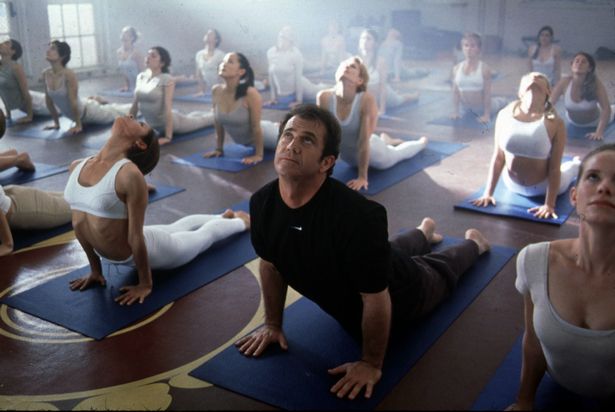The Oscars, which sit on our calendar like some weird, slightly dystopian holiday, have begun to remind me of the old Jerry Lewis Telethons for Muscular Dystrophy.
Do you remember them?
Jerry Lewis and whatever semblance of celebrity he could cobble together, would entertain the hell out of you for 24 hours straight, and in return you would pledge money to help fight MD.
The shows always took place on Labour Day weekend– when absolutely nothing else happened– and since it was the only thing on TV we watched it like it was a seasonal tradition. Staying up with Jerry was a both a dare and a way to extend the summer. Still, the telethons felt like artifacts from another era, something that was owned by a generation previous to mine.
The Academy Awards have this feel, too, and I watch them mostly for the comforting, predictable sense of nostalgia they always conjure, but I found this year’s edition to be, well, confused. Was it a self-congratulatory ad for a dying industry, or was it stationed at the forefront of a social revolution? Was it about fashion and beauty or was it about it not being about fashion and beauty?
It proved complicated to decipher.
Host Jimmy Kimmel made an opening #MeToo friendly joke about the absurd irony of Mel Gibson starring in a movie called What Women Want.
It was a safe joke, one that picked a target everybody could agree upon, and it got what was almost relieved laughter. It might be hard to imagine now, but Mel Gibson was once a beautiful dream of potential.
Now he is an unredeemable laughing stock.
What was ironic was that in 2000, the year What Women Want came out and made tons of money, Jimmy Kimmel was co-hosting The Man Show. At the time, the slim and woke Oscar host was less slim and less woke, and The Man Show was all about tits. It was about grabbing them by the pussy. It was a white boy frat party.
https://www.youtube.com/watch?v=Cl3wioLmNNY
And yet there was Jimmy Kimmel on Oscar night making jokes about Mel Gibson’s pernicious attitude toward woman while a bejeweled and admiring audience laughed their approval before him.
These moments of dissonance happened throughout the broadcast, the most vivid occurring when Wes Studi, a Cherokee actor you probably recognize but could never name, introduced a montage of military movies.
Clearly the depiction of violent masculinity in this particular climate was considered iffy, and as if to soften that potential for controversy and loss of market share, the production team got a member of an under represented community to introduce this unpopular, but tactically necessary segment. It was calculated, and when Studi opened by saying he was a proud veteran of the Vietnam War, the crowd’s confusion at how to respond was palpable. They no longer knew whether Studi stood for something good or bad, they could not interpret the symbol they were being shown. After the montage ended, and Studi uttered a dose of Cherokee– which at the time could have been either a blessing or curse– the audience opted for a shallow, incoherent applause.
You could also see the once unassailable Meryl Streep– who many believe did not do enough to stop Harvey Weinstein—giving way to the meme-friendly Francis McDormand as moral force and American exemplar. When once beloved comic Dave Chappelle came on stage to a spattering of applause, he found that the comedic power he held as an oppressed minority had been overshadowed by his criticism of #MeToo. The omnipresent and eager Ryan Seacrest, who somehow manages to emit a vibe that simultaneously suggests a Bro and a gay man, found himself snubbed on the red carpet by all the stars in response to an accusation of sexual misconduct levied against him. They were only too eager to nourish themselves on his fawning, promotional interviews before, but now?
And when Annabella Sciorra, Ashley Judd and Salma Hayek took the stage, glittering and beautiful and gazed upon from so many different points of view, it was hard to interpret all the mixed messages that were being sent out into the world.
Were these women brave activists or part of an exploitive one percent? Were they complicit in creating unrealistic expectations for women by opting for cosmetic surgery, or were they victims of an industry that demanded it from them as if it was a tax for being a woman? Could everything be true at once?
The Jerry Lewis Telethon ended just a few years ago. Over the course of it’s lifetime it raised over 2.5 billion for those fighting MD, but it also did so in an often self-serving and patronizing, if not wholly lurid manner.
In the end, were all those telethons a good released into this world or an evil?
It’s impossible to know, I guess, but it strikes me that nobody is all good or all bad. Each one of us is a riot of contradictions, often engaged in actions that elude our articulation or even understanding. Our lives and character are much more circumstantial and precarious than most of us would care to admit, and we would all be well served to save a little empathetic space in our hearts for those we don’t necessarily understand or agree with.
Everything, really, depends on that.







Comments
One response to “The Oscars”
Good article! Also, why did the Hollywood Academy Awards preach #metoo #timesup and THEN bring accused sex abuser Kobe Bryant out to receive an Oscar? #hypocrites